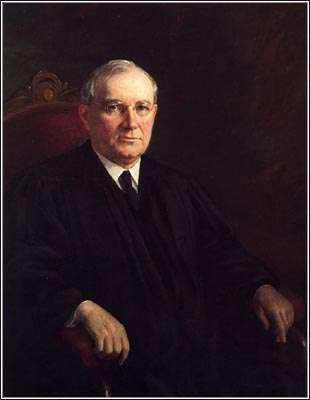Vermont has recently repealed its statute of limitations for childhood sexual abuse. As a result, Martin Giroux sued Paul Foley for allegedly assaulting him 35 years before, apparently when the Giroux and Foley families were vacationing in Vermont (from Kansas, where both families lived). Now normally Vermont would have jurisdiction over civil lawsuits stemming from alleged torts that physically took place within Vermont; but the question is whether the matter should be different here, given the parties’ lack of any continuing connection with Vermont, and given the defendant’s age and health problems. Here’s the defendant’s description of the facts:
Defendant Paul Foley is an 84-year-old man, and a resident of the Wichita, Kansas metropolitan area since the age of 5. Plaintiff’s family lived in the Wichita area as well when Plaintiff was growing up, and in the early 1980s, Defendant and Plaintiff’s father became friends through their work at a local college. The parties’ families socialized together in Kansas and occasionally vacationed together. During one such vacation to Vermont over one weekend thirty-five years ago, Plaintiff now alleges that Defendant sexually abused him ….
The parties’ relationship was centered entirely in Kansas. Neither party lived in Vermont at the time of the alleged conduct; Defendant has never spent any significant time in Vermont, nor to his knowledge has the Plaintiff. Plaintiff does not allege that the parties were ever in Vermont together other than the one weekend in 1984, or that Defendant was ever in the State again. At this juncture, Defendant is an ailing octogenarian who requires 24-hour assistance with his healthcare and activities of daily living. In addition, Defendant is not ambulatory, requiring an electronic mobility scooter to move independently. He still lives in Wichita; Plaintiff lives in New Jersey; and there are no known potential witnesses living in Vermont….
And here’s defendant’s jurisdiction argument:
Defendant moves to dismiss Plaintiff’s Complaint, pursuant to Fed. R. Civ. P. 12(b)(2), for lack of personal jurisdiction. Personal jurisdiction “concerns the authority of the court to hear and determine the controversy.” …
Vermont courts (and therefore the federal court in Vermont) would normally have “specific personal jurisdiction,” because the alleged tort took place in Vermont (despite defendant’s argument that, “Defendant’s de minimis alleged contacts with Vermont—a weekend in the Green Mountain State over 35 years ago—are insufficient for him to reasonably anticipate being haled into Court in Vermont”); but the defendant argues that this presumption is rebutted under the “reasonableness” prong of the jurisdiction inquiry:
The second part of the Due Process inquiry “asks whether the assertion of personal jurisdiction comports with ‘traditional notions of fair play and substantial justice’—that is, whether it is reasonable under the circumstances of the particular case.” As part of the “reasonableness” analysis, the U.S. Supreme Court has directed lower courts to evaluate the following factors:
[1] the burden that the exercise of jurisdiction will impose on the defendant;
[2] the interests of the forum state in adjudicating the case;
[3] the plaintiff’s interest in obtaining convenient and effective relief;
[4] the interstate judicial system’s interest in obtaining the most efficient resolution of the controversy; and
[5] the shared interest of the states in furthering substantive social policies….
Here, the burden on Defendant—a long-time resident of the greater Wichita metropolitan area—is substantial. As an ailing, non-ambulatory octogenarian, Defendant will find long distance travel to Vermont extremely difficult. His travel difficulties are compounded by his need for 24-hour assistance with his healthcare and activities of daily living, rendering litigation in Vermont highly burdensome, expensive, and potentially detrimental to his health. While any defendant would suffer a significant personal and financial burden litigating a case over 1,500 miles from his home, that burden is especially acute in this case as a result of Mr. Foley’s physical limitations. Contra Glinka v. Abraham & Rose Co., Ltd., 199 B.R. 484, 487 (D. Vt. 1996) (explaining that burden on defendant to defend in Vermont was slight, because its offices were in Montreal). Moreover, it is unlikely that there are any potential witnesses in Vermont with information about the litigation. See Metro. Life Ins. Co. v. Robertson-Ceco Corp., 84 F.3d 560, 573–74 (2d Cir. 1996) (first factor weighs in out-of-state defendant’s favor when no witnesses or evidence located in Vermont).
With regards to the second factor, Vermont has a limited interest in regulating the conduct between two out-of-state residents whose relationship centered in Kansas, particularly when the purported conduct is over 35 years old. As neither of the parties is a Vermont resident, the forum state’s interest in providing redress to its own citizens is entirely absent. Id. at 574; Bechard, 810 F.Supp. 579, 586 (D. Vt. 1992).
Turning to the third factor, Plaintiff’s interest in convenient and effective relief is hindered by litigating the matter in Vermont—no known witnesses are located in the Green Mountain State. Moreover, Plaintiff himself is not a resident of Vermont. Metro. Life, 84 F.3d at 574 (third factor carries less weight when plaintiff not resident of forum state). It appears that his only interest in litigating in Vermont “stems from [his] belief that the forum offers a more generous statute of limitations;” in fact, it may be the only forum in which Plaintiff’s claim is not barred. However, such a consideration is irrelevant and impermissible in the context of a jurisdictional inquiry. Id. (“‘The question of the applicability of [the forum state’s] statute of limitations … presents itself in the course of litigation only after jurisdiction over respondent is established, and we do not think that such choice of law concerns should complicate or distort the jurisdictional inquiry.'”).
When evaluating the fourth factor, “courts generally consider where witnesses and evidence are likely to be located.” As aforementioned, Plaintiff is a resident of New Jersey and Defendant is a resident of Kansas. As the parties’ entire relationship was based in Kansas, the vast majority, if not all, of the witnesses and evidence are likely to be located there—or at least outside of Vermont—thus this factor strongly favors Defendant.
Finally, with respect to the fifth factor, there is no shared interest of the states in furthering substantive social policies. While Vermont may have an interest in providing recourse for torts purportedly committed within its borders, other interested states—Kansas, for example—have a substantial interest in freeing their citizens from litigating stale claims and in giving individuals repose for ancient breaches of law. Consequently, there is not a shared interest in furthering a given substantive social policy in the present matter.
The unreasonableness of pursuing Defendant in Vermont is exacerbated by the extremely limited contacts asserted by the Plaintiff. Because Plaintiff asserts only de minimis contact by Defendant with Vermont, the Court should give particular weight to the unreasonableness of requiring Defendant to litigate here. See Ticketmaster–New York, Inc., 26 F.3d at 210 (“the weaker the plaintiff’s showing [on minimum contacts], the less a defendant need show in terms of unreasonableness to defeat jurisdiction.”)
In sum, because Defendant’s contacts with Vermont are de minimis, the reasonableness factors should carry greater weight in the Court’s Due Process inquiry. Metro. Life, 84 F.3d at 568. Those factors evince the unreasonableness of this Court exercising personal jurisdiction over Defendant. Put differently, Plaintiff’s interest in pursuing his action in Vermont and Vermont’s interest in adjudicating the matter are so attenuated that the assertion of personal jurisdiction does not comport with traditional notions of fair play and justice. Exercising jurisdiction over the Defendant on these facts is unreasonable and thus violates Defendant’s Due Process rights. Accordingly, Plaintiff’s Complaint should be dismissed for lack of personal jurisdiction over Defendant….
I’m not an expert on jurisdiction, but some people I asked suggest that a court would likely not reject personal jurisdiction in a lawsuit over a tort that allegedly physically took place within that very state; and the cases cited in the motion don’t persuade me to the contrary. We’ll see soon what this court concludes.
Note that a court with jurisdiction might decline to exercise it on the grounds of forum non conveniens (which, unsurprisingly, more or less means “the forum is not convenient”), based on factors such as the ones the defendant is arguing above. But that’s not the argument the defendant is making in this motion.
This, by the way, is the case in which I’ve moving to unseal the Complaint; but this motion was not filed under seal, likely because the sealing order in the case (and the state statute on which the sealing order relied) doesn’t seem to cover motions to dismiss.

from Latest – Reason.com https://ift.tt/2qlL6eB
via IFTTT

